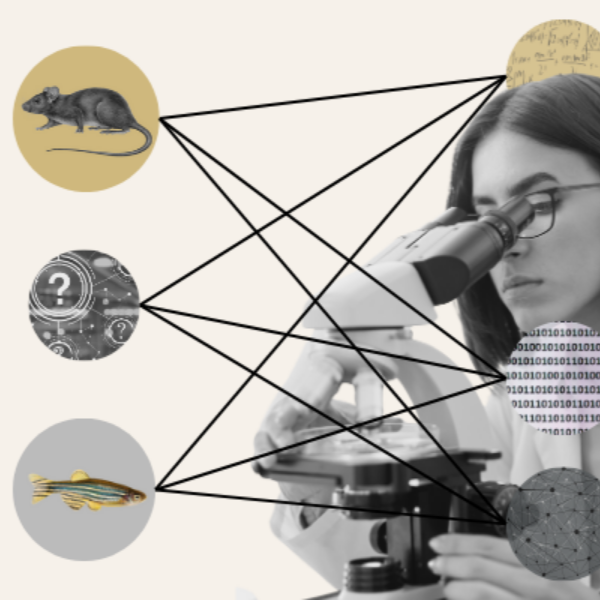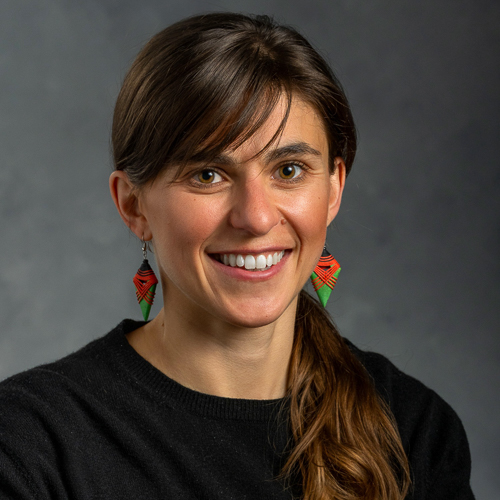MSU Semi-Finalist Team Participates in XPRIZE Rainforest
The XPRIZE Rainforest, sometimes called the Olympics of Science, is a global competition aiming to enhance the world’s understanding of the rainforest ecosystems to protect it. Michigan State University has deployed faculty, staff, and graduate and undergraduate students who are biologists, engineers, computer scientists, geographers, information technologists, and anthropologists. They bring sweeping expertise in social justice, biodiversity, climate change, plants, animals, robotics, genomics, landscape ecology, wrangling and analyzing big data.
XPRIZE Rainforest will accelerate the innovation of autonomous technologies needed for biodiversity assessment and will enhance understanding of rainforest ecosystems by using rapid data integration to provide new wisdom about the forest as well as inspire new investment and exploration. The XPRIZE Rainforest intends to reveal the true potential of the standing forest, accelerating the development of new, just, and sustainable bioeconomies.
From an original 300 teams, 13 teams of semifinalists competed in Singapore the first two weeks of June, each assigned to a 100-hectacre plot of dense jungle. The task: with only 24 hours to collect data and 48 hours to analyze those data, identify as many species in the plant and animal kingdom as possible. The hitch: no humans can set foot inside the forest plot.
Phoebe Zarnetske, scientific lead for the XPRIZE Rainforest ACTNOW Amazonas team said, "This is supersized science and a chance to showcase our Spartan innovation and expertise – to quickly gain an understanding of what lives in such an important ecosystem. We are proud to collaborate with an incredible core membership of indigenous community members, with co-leads Fiona Bannister founder Decarbonized.org, Indrani Pal-Chaudhuri and GK Reid. Advancing the ability of the land stewards to conserve these forests is absolutely aligned with MSU’s core values.”
ACT NOW – Amazonas Action Alliance includes Amazonian indigenous leaders, scientists and entrepreneurs. Seventy Spartans have joined the team, 15 of which are in Singapore, including engineering students Gavin Gardner, Gryson Gardner, Ross Davis, and Ryan Atkinson. They are members of MSU’s Drone Research and Intelligence Flight Technology or DRIFT team, a NASA-funded student led research group developing novel use cases for autonomous drones.
Other MSU participants include: Bob Goodwin (Senior Geospatial Analyst/Project Manager, Department of Geography, Envionment, & Spatial Sciences; Eric Benbow (Entomology); Melissa Benbow (Pediatrics, team physician for the MSU group); Matt Lee (Engineering & Computer Science); and JP Lawrence (Lyman Briggs College). The group also included several non-MSU participants.
“Indigenous communities throughout the world are central to this project,” Zarnetske said. “Their traditional ecological knowledge of nature is essential to include.”
She said MSU’s team has been working directly with the team’s indigenous leaders who will be bringing their wisdom to the Singapore rainforest competition: Hector Vargas, primate expert and Sumak Allpa, of the Kichwa in Ecuador; Puwe Puyanawa, plant biologist and Spiritual Leader of the Puyanawa; and Rosane Puyanawa, singer, environment and Puyanawa youth activist leader. The MSU team filmed their work in the Amazon last year, met weekly by Zoom to advance insights, and plans further field tests in the Amazon after the semifinals to identify what’s needed to effectively monitor and protect their lands and develop accessible techniques to do so.
“MSU’s team is the only one collaborating extensively with communities that live with the biodiversity being studied,” she said.
The team has been supported by funding from MSU’s Office of Research and Innovation, the College of Natural Science, the College of Engineering, the College of Agriculture and Natural Resources, the College of Social Science, AgBioResearch, Lyman Briggs College, International Studies and Programs, and the College of Medicine. In addition to Zarnetske, several team members also are members of the Ecology, Evolution, and Behavior (EEB) Program at MSU.



